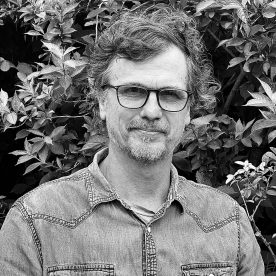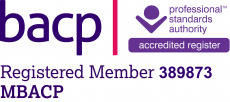Welcome to Therapy with Greg
A confidential space to explore the thoughts, feelings and challenges in your life
North Wales Therapist for depression, anxiety disorder, depression, feeling sad, social anxiety, trauma and post-traumatic stress disorder (PTSD), anxiety,
loss, grief or bereavement, problems with confidence or self-esteem, panic
attacks, difficulties at work or in retirement, problems with family or school life, abuse, anger
Tools for anxiety and depression.....
Therapy for Anxiety, Generalised Anxiety Disorder, Depression, Feeling Sad, Social Anxiety.....
Counselling in Bangor, and online sessions by Zoom
Are you struggling with anxiety, general anxiety disorders, depression, feeling sad, social anxiety, stress, trauma and post-traumatic stress disorder (PTSD)?
I believe wholeheartedly in the effectiveness of talk therapy. The science behind the brain chemistry of the human brain and how it affects our behaviours is noteworthy and interesting. However, it is only part of the story. The use of anti-depressants, and anti-psychotic drugs in more severe cases, can help some people but these chemical interventions treat only the symptoms of depression, anxiety and feeling sad. My way of working together with you goes straight to the source. I acknowledge every part of your experience of being human including body chemistry, behaviours, social dynamics, and if applicable, your spiritual dimension.
I've found that the beginning of finding the source of many mental health challenges begins with understanding your past, whether that be adverse childhood experiences (see John Bowlby) or trauma from anytime in your life. Talking about these things is rarely easy, but it is where we must begin to get to the source of your mental health challenges. After this we begin to work on the often negative effects of future thinking, overthinking and or catastrophic thinking.
The human mind is capable of great things! On the other end of the spectrum, it is capable of chaos and confusion. Most people today struggle with either living too much in the past or future. Over-active minds are what feed anxiety and depression and can leave us feeling powerless!
Counselling helps by making you more aware of your thoughts, and with concerted efforts you can bring your busy minds back under control, which helps make you feel more grounded and self-aware.
Finally, I focus with sincerity on you reaching your therapeutic goals. In addition, I will do my best to help you develop the emotional intelligence you need to deal with your mental health challenges. I will also give you the tools and skills you need to independently care for your mental health. By the time you have left my care, you will have the self-confidence and self-awareness to handle anything that life can throw at you.
I offer Online and face to face sessions.
Sessions
I prefer online sessions, but also offer face-to-face sessions. Many people find online therapy less intimidating and easier to open up - it’s private, flexible, and often more comfortable than sitting in a room at first.
Next step
If you’re ready to take the next step, you’re welcome to get in touch to arrange a free 15-30 minute call (Zoom or phone). It’s a simple, no-pressure way to see if working together feels like a fit. I do my best to respond the same day, and always within 24 hours.


I work with people from all walks of life and backgrounds, who come to me with a diverse range of challenges. As a qualified counsellor and a Registered Member of the British Association of Counselling and Psychotherapy (BACP). I abide by the BACP's Ethical Framework
Making the decision to see a counsellor is a big step to take - but it can be a positive one. Please read on to find out more about how I can support you if you are feeling sad, lonely or anxious.
I'm an integrative therapist which means I use several different approaches to give you the most effective guidance possible. My approach to therapy is grounded in Attachment Theory and the Humanistic Approach. This is a non-judgmental way of working, where I endeavour to create the right conditions to help you increase your self-awareness; to move towards, and reach your fullest potential. However, I also include Cognitive Behavioural Therapy (CBT), Mindfulness. Also included is instruction in meditation, self-awareness and acceptance.

TESTIMONIALS
HOW CAN COUNSELLING HELP?
I believe wholeheartedly in the effectiveness of talk therapy. The science behind the brain chemistry of the human brain and how it affects our behaviours is noteworthy and interesting. However, it is only part of the story. The use of anti-depressants, and anti-psychotic drugs in more severe cases, can help some people but these chemical interventions treat only the symptoms of depression, anxiety and feeling sad. My way of working together with you goes straight to the source. I acknowledge every part of your experience of being human including body chemistry, behaviours, social dynamics, and if applicable, your spiritual dimension.
The source? What and where is that? I've found that the beginning of finding the source of many mental health challenges begins with understanding past trauma, whether that be from childhood (see John Bowlby) or trauma from anytime in your life. Talking about these things is rarely easy, but it is where we must begin to get to the source of your mental health challenges. After this we begin to work on the often negative effects of future thinking, overthinking and or catastrophic thinking.
The human mind is capable of great things! On the other end of the spectrum, it is capable of chaos and confusion. Most people today struggle with either living too much in the past or future. Over-active minds are what feed anxiety and depression and can leave us feeling powerless!
My approach to Counselling will make you more aware of your thoughts, and with concerted efforts you can bring your busy minds back under control to help make you feel more grounded and self-aware.
Finally, I focus with sincerity on you reaching your therapeutic goals. In addition, I will do my best to help you develop the emotional intelligence you need to deal with your mental health challenges. I will also give you the tools and skills you need to independently care for your mental health. By the time you have left my care, you will have the self-confidence and self-awareness to handle anything that life can throw at you.
People come to me for help a wide range of issues. Here are a few of the more common difficulties that can be supported through counselling:
Trauma and Post-Traumatic Stress Disorder (PTSD)
Panic Attacks
Relationship Problems
Grief, Loss or Bereavement
Anxiety
Abuse
Problems with Confidence or Self-esteem
Anger Management
Difficulties at Work or in Retirement
Problems with Family
Generalised Anxiety Disorder
Depression
SPEAK IN CONFIDENCE
Face to Face counselling takes place in a safe, comfortable, well-lit space where I listen with sensitivity and empathy - and without judgement. In the therapy space thoughts and feelings can be expressed freely and in confidence.
Online counselling has been found to be just as effective as face to face counselling. During online sessions I am focussed and intent on giving you the best care possible.
A Challenge Shared in Counselling ...
If you are having trouble with beginning or maintaining relationships, feeling anxious, having regular panic attacks, experiencing mood swings or depression, be reassured that there are many people in today's society who are struggling with some the same challenges. Counselling gives us a set of tools we can use to help gain a better understanding of what’s causing these disruptions in our daily life, and counselling can help you move towards managing or resolving these issues.
Make Better, Healthier New Choices
Working together, I can help you gain greater insight into the difficulties you are facing, help you understand why you act or react to your specific challenges the way you do, and see how you can start to make better, heathier choices moving forward.
CONTACT ME
All enquires are usually answered within 24 hours, and all contact is strictly confidential and uses secure phone and email services. Find out more by reading my Privacy Policy.
MY LOCATION
30 Dean St.
Suite 5b3
Bangor LL57 1UR
Secure Entry Intercom: Therapy with Greg
FEES & AVAILABILITY
Counselling sessions for individuals last 50 minutes, on a weekly basis, and cost £50 per session. I also provide a limited number of spaces for those on low-income or for students; contact me to enquire about availability. The first session will last 75 minutes, and cost £70.
NOTE:
Cancellations: if you want to cancel an appointment I require 48 hours’ notice; otherwise you will still need to pay for any sessions missed. I accept payment online, cash or by bank transfer.
YOU MAY NOT KNOW IT, BUT YOU’VE ALREADY TAKEN THE FIRST STEP...
It can be scary and confusing making the decision to contact a counsellor or therapist, but in my experience people will struggle with a mental health issue, a personal crisis or problems with a relationship for much longer than is healthy. Sometimes a friend has proved a source of comfort, but this help can only go so far. Realising that resolving a problem requires something more, means you have actually already taken the first step towards improving your life through increased self-awareness.
FREQUENTLY ASKED QUESTIONS
Counselling and psychotherapy are interchangeable terms. Some might make a distinction between counselling and psychotherapy where counselling is for short-term, life-situational problems, and where psychotherapy aims to go deeper to find underlying issues that have been repressed. Our lives are a collection of experiences, and through these happenings we develop a character, personality and ego. In my opinion, our choices and behaviours are result of being born, living and experiencing. I do not find it useful to attempt to solve challenges in our lives through isolating one problem or challenge that you are facing. On the contrary, I conceive our Self as a complex mix of our biological/physical/chemical, psychological, social/evironmental Selves that can not be sub-divided, and can only be treated as a whole - you are not your life situation. Your true Self lives deeper, under all of the experiences and behaviours on the surface.
How long a period of counselling lasts will vary from person to person and depend on the depth of the issues they are facing. For some people a couple of sessions helps to bring their challenges into focus, and they feel ready to move forward; other challenges may require more of an open-ended approach.
Before we begin any work we will agree on the number of sessions that we’ll undertake, and at the end of those sessions, we will review our progress. The review is the perfect time to for both you and I to reflect, and to ascertain whether you wish to continue with sessions.
My aim is to offer a first appointment - known as an initial assessment - within 1-2 weeks. Then we would arrange a set number of counselling sessions to take place at the same time every week, that is convenient for you and where I have availabity. How quickly these sessions can begin will depend on the availabity of that free ‘slot’.
Everything that is said within the counselling room is private - this is one of the main ways counselling and therapy differ from talking to a friend or relative. Once you are comfortable with the format of weekly sessions and the safe space they provide, you will find that the freedom to speak in confidence is of great value.
Note: There are exceptions to the rule of confidentiality, and these terms are universal for all mental health practitioners. These terms will be discussed during our contracting session.
Usually I am asked this question by people who are nervous about entering into counselling, or when they are looking for support in coming to see a therapist. This anxiety is understandable, but a key aspect of therapy is that you should feel free to talk about any issues you feel are important to you.
Having a friend, relative or partner in the room might seem like a good idea, but their very presence will limit your freedom of expression. Therefore, I allow only you and me in the therapeutic space.
Note: It is important that you have time and space after our sessions to process what transpired during our session.
©2021 Greg Young
Powered by WebHealer